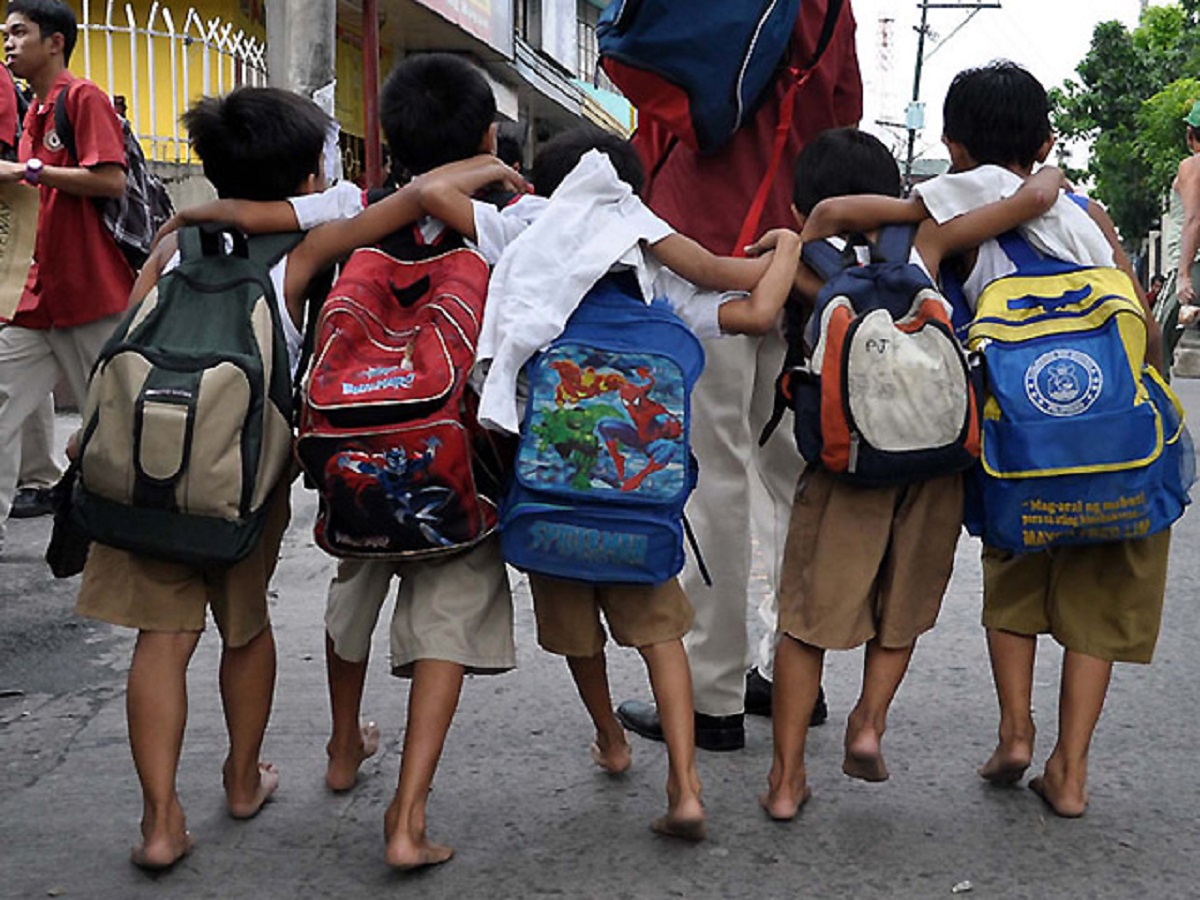From public to private school: How incoming Grade 7 learners can become ESC grantees

As the School Year 2023-2024 ends, students prepare for the start of the next academic year.
In this series, GMA News Online will explore the subsidies made available by the government both in the basic and higher education systems, and how underprivileged students can avail them.
FIRST PART: Moving up to senior high: How to avail education subsidy voucher from DepEd
SECOND OF THREE PARTS
Studying in a Philippine public school has its pros and cons. While some of the best students were products of the free public education system, it could not be denied that private ones also have their own edge in shaping the minds and skills of their learners.
And with around 27 million learners enrolled in over 47,000 public schools across the country last school year, one could only imagine how congested some public schools are.
This is why some parents wish to send their children to private schools albeit having to pay tuition—-or not.
Under the Education Service Contracting (ESC), certified private junior high schools are contracted by the Department of Education (DepEd) to allocate slots for students, particularly incoming Grade 7 learners, to study there, instead of public schools.
DepEd spokesperson Undersecretary Michael Poa said the primary goal of this program is to decongest overcrowded public schools, particularly those in the National Capital Region and Calabarzon.
“Isa na rin sa magandang idinudulot ng programa na ito is nabibigyan ‘yung ating mga public school students ng exposure sa mga private schools kung saan syempre, may mga private schools na mas maganda o mas kumpleto ang kanilang facilities, which in turn helps with quality of education,” he told GMA News Online.
(One of the benefits of this program is that it gives public school students the exposure to study in private schools where there are better or more complete facilities, which in turn helps with the quality of education.)
To apply for the ESC, Poa said that incoming Grade 7 students need to check for the slots available in the school they are eyeing.
Slot allocations are based on the capacity of private schools to accommodate grantees and the slots awarded to them based on their demonstrated quality.
Click here for the list of participating private schools under the ESC: https://peac.org.ph/wp-content/uploads/2023/10/ESC-ALPHALIST.pdf
For SY 2023-2024, there were 3,632 ESC-participating schools nationwide, while a total of 894,273 students were considered ESC grantees.
It is the Republic Act No. 8545 or the Expanded Government Assistance to Students and Teachers in Private Education (E-GASTPE) that provides the legal basis for this financial assistance program to students in private schools.
Through the ESC, four years of junior high school of a grantee will be covered by the government starting Grade 7. This grant remains in force for the next school year if the grantee moves to the next grade level and enrolls in an ESC-participating school.
Probably the best part about this program is no maintaining grades are required per school year to continue being a grantee.
However, the grant may be terminated if the grantee does any of the following:
- Drop out for non-health reasons in the middle of the school year;
- Not re-enroll the following school year;
- Fail to be promoted to the next grade level or is retained at the same grade level;
- Get suspended for more than two weeks, dismissed, or expelled by the school for disciplinary reasons; or
- Transfer to a non-ESC-participating junior high school
The amount paid to schools depends on their location, whether inside or outside the NCR, and is quoted per ESC grantee per school year. It ranges between P7,500 to P11,000 per school year.
It should be noted that the priority for this program are graduates of public elementary schools.
The school committees are responsible for profiling and assessing the applicants and select grantees based on need, given the limited slots allocated per school.
Show proof of income
Poa admitted that DepEd still needs to strengthen controls to ensure that the beneficiaries of this program came from underprivileged families, particularly those with P20,000 or less monthly family income.
Thus, starting SY 2024-2025, he said grantees or applicants already need to show a proof of their family income and upload it in the system of the ESC-participating schools.
“We need to really ensure that there are established controls para masigurado natin na natutulungan natin 'yung pinakanangangailangan That's why this year meron tayong second layer na gagawin dito,” he said.
(We really need to ensure that there are established controls so that we can make sure that we are helping those who need it the most. That's why this year we have a second layer of screening to implement.)
“Ang gusto nating mangyari is mag-attach na rin talaga sila, i-upload nila ‘yung kanilang income para makita talaga natin… at magkaroon tayo ng prioritization kung sino talaga dapat ang mabigyan dahil nga with the limited slots,” he added.
(What we want to happen is for grantees to upload proof of their family income so we can really see and give prioritization to those who really need it, given the limited slots.)
In March, Senator Sherwin Gatchalian revealed that around P8 billion worth of educational assistance, supposedly for underprivileged learners, is spent annually for “non-poor” students under the ESC.
Since these are public funds being paid by taxpayers, the senator stressed that equity should be observed and that underprivileged learners should be prioritized first as beneficiaries.—AOL, GMA Integrated News




